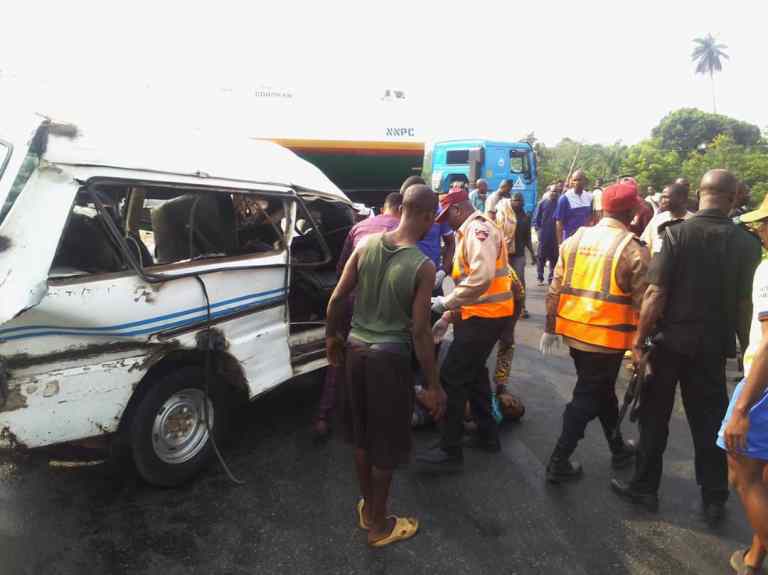The Federal Road Safety Corps, FRSC, has announced that over 40,000 people die annually due to road accidents in Nigeria.
Corps Marshal, Dauda Biu disclosed this in Abuja during activities marking the 7th United Nations Global Road Safety Week.
Biu said1.3 million people across the world were killed and about 50 million people get injured each year globally.
The head of the road safety agency noted that the United Nations had developed a global plan for the Decade of Action for Road Safety 2021-2030.
The action plan has an ambitious target to reduce road traffic deaths and injuries, which would be by 50 percent 2030.
“Ensuring safety must be at the core of efforts to re-imagine mobility. Road networks must be designed with the most-at-risk in mind,” Biu said.
This 7th edition focuses on sustainable transport, in particular the need to shift to walking, cycling and using public transport. Road safety is both a prerequisite for and an outcome of this shift.
The week is organized by the World Health Organization (WHO) and the UN regional commissions, and it is supported by a wide range of partners, including governments, NGOs, businesses, and individuals.
The week was first marked in 2007. It was no longer observed until 2013, and it had been recorded every two years since then until 2019. It is a special global road safety campaign hosted by the World Health Organization (WHO) that aims to raise awareness about road safety and accident prevention.
Key messages of the 7th UN Global Road Safety Week:
Governments and their partners need to rethink mobility – this includes investing in walking, cycling and using public transport, which can promote equity and health for people and the planet.
Safety must be at the core of efforts to reimagine mobility – this puts road safety at the core for all road users.
Thus road networks must be designed with the most-at-risk in mind – children, adolescents, persons with disabilities, pedestrians, cyclists, and users of public transport.
Walking and cycling, when safe, contributes to people’s health and makes cities sustainable and societies equitable.
Safe, affordable, accessible and sustainable public transport solves many of society’s ill.

